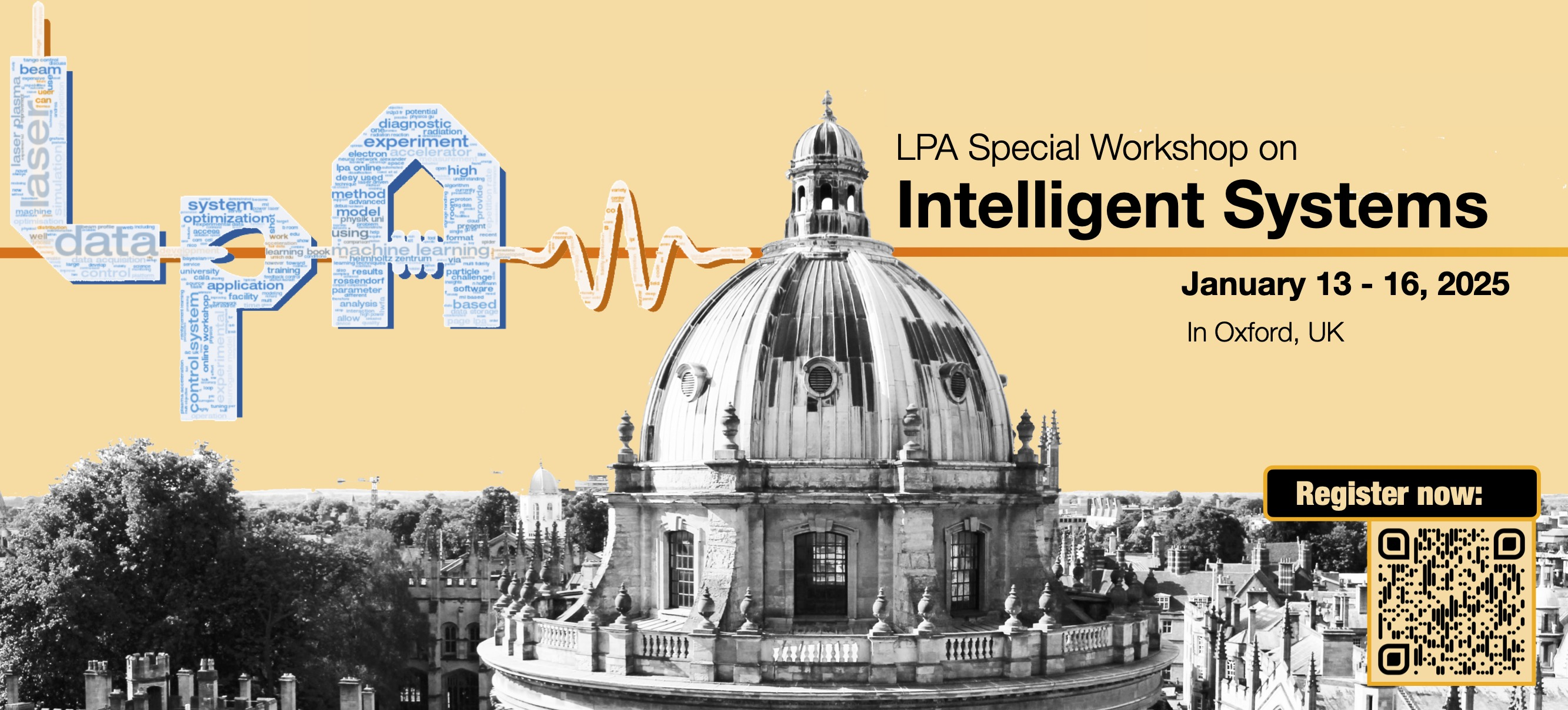Sprecher
Beschreibung
Laser electron accelerators are emerging as compact sources for high-quality relativistic electron beams, following the increasing demand from areas such as material science, health, particle physics, and astrophysics. Each application, such as driving a Free Electron Laser, requires specific electron beam properties and their stability, both shot-to-shot and long-time scale. As laser wakefield acceleration is driven by high-intensity lasers, it relies on a complex, non-linear interplay between drive laser and plasma parameters, which gives rise to ample parameter space. In addition, because of the system's nonlinearity, statistical fluctuations in the laser or the plasma significantly impact the stability of the accelerated electron beam properties.
For finding a suitable experiment configuration in the ample parameter space, machine learning tools such as Bayesian optimization can be valuable. However, their implementation is often challenging because of hidden underlying parameters as well as statistical noise, making correlations needed for optimization less pronounced.
To quantify and mitigate the influence of these statistical fluctuations on the system stability, we have gathered a large dataset with systematic studies of the magnitude and nature of the statistical fluctuations and their impact on each future optimization parameter. This work will contribute to a better understanding of the underlying sources of instability of laser-plasma acceleration experiments and pave the road toward successful implementation of an automatized implementation of Bayesian Optimization
